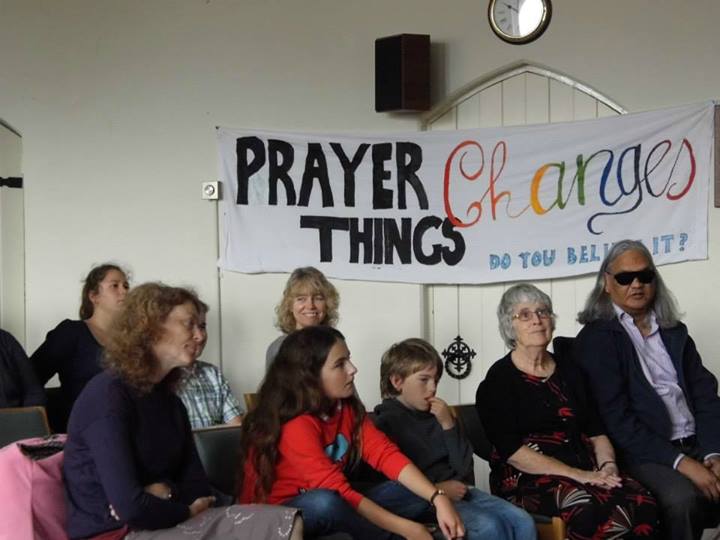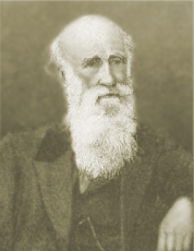After the article by Senior Lecturer in Comparative Central and East European Politics at UCL School of Slavonic and East European Studies in London Seán Hanley, I would like to advise you also to read the opinion piece by Professor Paul Ekins, Professor of Resources and Environmental Policy and Director, UCL Institute for Sustainable Resources, University College London, which was first published on the UCL ISR blog.
 Paul Ekins’ academic work focuses on the conditions and policies for achieving an environmentally sustainable economy and received in 1994 a Global 500 Award ‘for outstanding environmental achievement’ from the United Nations Environment Programme. In 2015 he was awarded an OBE in the UK’s New Year’s Honours List for services to environmental policy.
Paul Ekins’ academic work focuses on the conditions and policies for achieving an environmentally sustainable economy and received in 1994 a Global 500 Award ‘for outstanding environmental achievement’ from the United Nations Environment Programme. In 2015 he was awarded an OBE in the UK’s New Year’s Honours List for services to environmental policy.

Green Party MP Caroline Lucas spoke exclusively with edie after featuring in a panel debate about the impact of EU membership on UK environmental policy. Photo: carolinelucas.com
Ekins shared the view of Green MP Caroline Lucas who said
“The EU offers a crucial level playing field on minimal environmental regulation to prevent a certain race to the bottom, when Member States seek to gain a competitive advantage by destroying the natural environment.”
At an April debate, hosted by environmental campaign group Friends of the Earth (FoE), Lucas was joined by Labour’s Shadow Energy Secretary Caroline Flint; writer and environmentalist Tony Juniper; FoE chief executive Craig Bennett; and Boris Johnson’s dad Stanley – who all unanimously agreed that remaining IN the EU is imperative for the UK’s low-carbon future.
As co-chair of newfound ‘in’ campaign organisation Environmentalists for Europe, former Tory MP Stanley Johnson claimed that Brexit would be a “disaster” for Britain.
“There are plenty of things about Europe that we need to get right – beyond the environment – but there’s no way we’re going to get anything right if we don’t stay in the EU,”
he said.
Ekins insisted at a May debate that the UK could “harmonise” the environmental performance of goods through common efficiency standards, so long as it remains a member of the Union.
***
Crowd Forum debate involving Caroline Lucas MP, Professor Paul Ekins, Michael Liebreich and Lord Callanan.
***
Professor Paul Ekins is aware that
‘The UK has had a substantial influence on EU energy market developments, and has led the way in pushing for market liberalisation through successive Energy Packages since the 1990s. “
and continued to say
‘The uncertainties around Brexit will leave many important issues related to the UK energy system in limbo for at least two years. For example, if the UK votes to leave the EU, much will depend on whether we remain part of the internal energy market and are accepted as a member of the European Economic Area, like Norway. The former would give us benefits, not least because the majority of UK gas imports, 73%, come via pipelines from other EU member states, and Norway. But in the EEA but outside the EU we would have far less influence on the EU energy market than we have exerted in the past, because, like Norway, we will be subject to EU energy policy without having any representation in EU institutions.’
Too many people living in this world do forget that climate change is the biggest threat the humanity faces. The best minds and technology are needed as fast as possible to tackle the catastrophe. By working inside the EU, humanity has a better chance of responding quickly.
Britain’s membership of the European Union has had a hugely positive effect on the quality of Britain’s beaches, their water and rivers, their air and many of their rarest birds, plants and animals and their habitats. When being part of the European Union Great Britain co-ordinate action was enabled and agree policies could improved the quality of life for the inhabitants of the isle, including the air they breathe, the seas they fish in, and have protected the wildlife which crosses national boundaries. Higher European manufacturing standards for cars, lights and household appliances have lowered consumer energy costs, and stimulated business innovation.
Only by Member States working together so much could be accomplished. British sovereignty in respect of energy and climate change policy has been expanded, not diminished, by its EU membership. The environmental rules of engagement with the EU after Brexit are very uncertain and would be subject to lengthy and protracted negotiation due to our new status as an outsider. The people of Great Britain have chosen to go their own way but by doing so they also shall no longer be able to shape EU policy and their influence on the environmental performance of other member states would decline very sharply once they are no longer at the negotiating table. Now the factories see the road clear to demand less EU restrictions. The Government shall come under huge pressure from industry to water down environmental protections in areas like energy efficiency to help the UK to become more competitive against their former European partners.
“Individual nations can have limited influence, but working through the EU greatly enhances our potential to tackle transnational issues such as climate change, deforestation and unsustainable wildlife harvesting,”
said Ekins.
The agreement on UK/EU terms of engagement, which involves minimal disruption to trade and investment, can perhaps follow easier when Scotland is not to pursue independence, and Sinn Fein not to pursue a referendum on Irish reunification. Further a steadying of the economy by the Bank of England and current Chancellor, and therewith a steadying in both the stock and currency markets are highly needed.
Ekins says
The damage of Brexit to the UK and EU economies, and to the UK and EU politically, is minimal, far less than was forecast by practically everyone. ‘Experts’, especially economists, become the butt of more jokes. In five years’ time the UK’s position in Europe is a bit like Norway’s, but immigration has been restricted by the new curbs on freedom of movement. Leavers are delighted and say ‘I told you so’. Remainers are mightily relieved that the meltdown they feared has not occurred. The curbs on the freedom of movement of labour are used by other EU Member States to take the heat out of their populist movements. The ‘reformed’ EU continues more or less as before.
Though we may see Scotland pursuing its independence referendum by refusing to permit the UK Parliament to implement Brexit legislation and their prime minister and the Scots have clearly shown they want to stay part of the Union.
In such case Ekins sees that
The Good Friday agreement on Northern Ireland becomes a dead letter and violence breaks out again between ‘loyalists’ and ‘republicans’. The European Commission makes clear to the new British Prime Minister that membership of the Internal Single Market requires freedom of movement of labour and full implementation of EU law. Brexiteers, reinforced by a General Election, reject these terms and the UK leaves the Internal Single Market. So do many financial firms currently in the City of London, setting up European offices in Paris or Frankfurt where they can continue with their Euro-trade. Investment in UK businesses falls, and capital flight to less uncertain economies gathers pace. The UK goes into recession and there is serious social unrest. Brexiteers blame ‘Europe’ for the mess. The Remainers blame the Brexiteers. While the ‘experts’ can say ‘I told you so’, few do so, and even fewer do so with any pleasure. They are too concerned to reduce the damage of the fall out to the UK and EU economies, and more widely. As for the politics, the only thing that is certain is that the UK has ceased to exist in its pre-referendum form, and even after five years no-one knows what constitutional shape these islands might fall into. In respect of the EU, populist movements in other countries have thrived, even as their economies have been hit by the recession in the UK and overall economic uncertainty. Some other countries have also left the EU. The EU as currently conceived has also effectively ceased to exist.
Read about his two scenario’s: Brexit: The mother of all uncertainties
+
Preceding articles
Economic crisis danger for the rise of political extremism
Brexit clashes and reasons to consider to bring out the right vote
Brexit, Nexit, Vlexit and Frexit
Foreign workers and immigrants
Could Brexit lead to Frexit – or Czexit?
++
Additional reading
- EU referendum: ‘Brexit’ poses huge risk to UK’s countryside, experts warn
- Michael Liebreich downplays impact of Brexit on clean energy investment
- Caroline Lucas: Brexit is a frightening prospect for Britain’s environment
- Brexit vote likely to mean two years of uncertainty for UK energy
- Brexit backfire? UK actually has more ‘energy sovereignty’ inside the EU than out
- A big opportunity for Europe




























 Biblestudents – Bijbelstudenten
Biblestudents – Bijbelstudenten 0 + Bloggers for Peace
0 + Bloggers for Peace Free Christadelphian Ecclesia
Free Christadelphian Ecclesia Hoop tot Leven – Redding in Christus
Hoop tot Leven – Redding in Christus Vrije Broeders in Christus (Free Flemish Christadelphians on Wordpress)
Vrije Broeders in Christus (Free Flemish Christadelphians on Wordpress)















Amber Rudd said that the UK remained committed to action on global warming and on Thursday she will approve a world-leading carbon target for 2032.
She said she agreed with chancellor, George Osborne, that the UK now faced a period of uncertainty.
LikeLike
Pingback: Brexit and British business | Marcus Ampe's Space
Reblogged this on hungarywolf.
LikeLike
Pingback: First sayings around the Brexit | Marcus Ampe's Space
Pingback: Brexit: Why Cameron’s campaign lost | Marcus Ampe's Space
Pingback: Wales will probably lose its EU funding #Brexit | Marcus Ampe's Space
Pingback: At the closing hours of 2016 #2 Low but also highlights | Marcus Ampe's Space
Pingback: 60 years after creation of European Economic Community, Europeans skeptical about one of their biggest achievements this century | From guestwriters
Pingback: Strength does not lie in splendid isolation but in our unique union | Marcus Ampe's Space
Pingback: Brexit 5 years onwards | Marcus Ampe's Space
Pingback: Brexit, what we lost in the fire | Marcus Ampe's Space
Pingback: Wich way to go for Scotland – Some View on the World
Pingback: History.com: This Day In History (January 04-1999): The euro debuts – Some View on the World